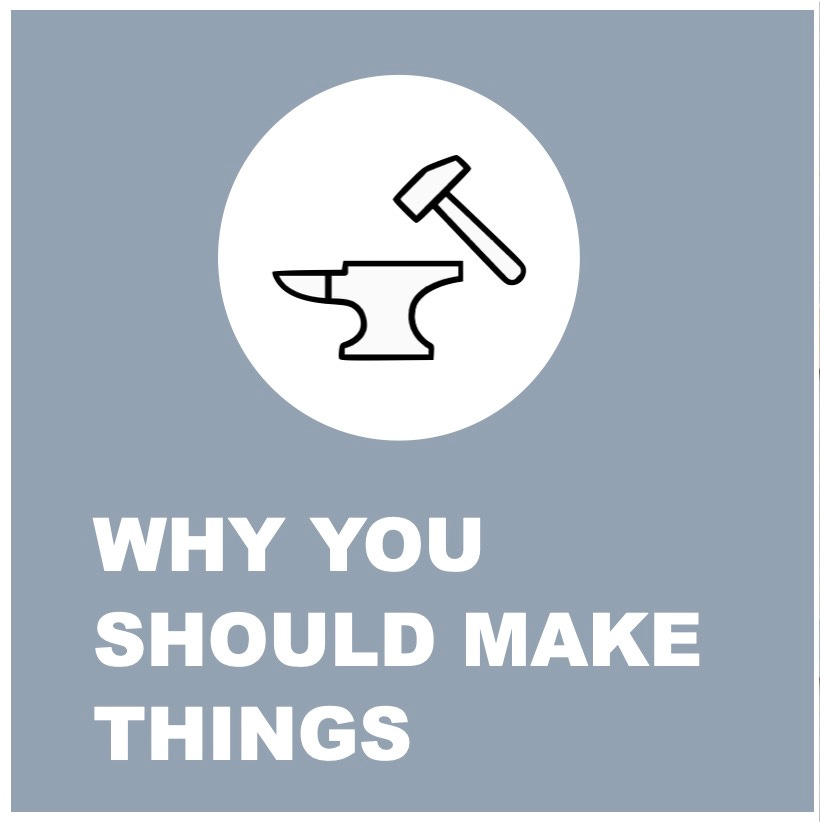
Why is making things, and trying to make them as well as you possibly can, worthwhile? And what is art good for? And how should the artist (in the least pretentious sense of the word) approach his or her work?
In every serious conversation about what I’m doing with How to Succeed in Evil, these questions have come up again and again. So I thought I would gather my answers together in an essay. Because they are sane and useful. And these principles have helped me put my life back together after trauma as well as grow and learn and become a better person. My answers might not fit you, and that’s fine, but I do hope you find something in here that you can use.
Before we can get into it, I have to talk about the philosophical foundations of this essay and how they are at odds with the time in which we live.
I believe that art is a source of profound meaning. And the practice of any art or craft is deeply personal and transformative. And further, I think the psychological crisis of our times is a struggle against meaninglessness. Maybe this has always been the struggle, but as I read history, it has has been particularly acute since WWI.
In the humanities, this crisis of meaninglessness has a name. Critical Theory. Critical Theory seems to me to be the stance that the majority of academics – by academics I mean non-artists – take towards art, especially the literary arts. Art is seen as primarily political. Art is about power. Art is about class struggle. It is very important who made the piece of art, and how the work is used or can be read as revealing of a political struggle for power.
Critical theory is concerned with things like “forms of authority and injustice that accompanied the evolution of industrial and corporate capitalism as a political-economic system,” and dealing with social problems by “by situating them in historical and cultural contexts, to implicate themselves in the process of collecting and analyzing data, and to relativize their findings.”
I think Harold Bloom nailed it when he described critical literary theory as the “School of Resentment,” saying that politics has no place and not much use in literary criticism - that a Feminist or Marxist reading of Hamlet will tell you something about Feminism or Marxism, but probably not very much about Hamlet.
Critical theory is the “everything is relative”, “all interpretations are equally valid” “truth is socially constructed” section of the intellectual trailer park that the academic Humanities seem to have become.
I don’t believe that truth is socially constructed or that everything is relative. For example, the second law of thermodynamics is not socially constructed. It operates whether you believe in it or not.
I believe everything is very complicated, especially context, but just because the truth can be difficult or even impossible to know doesn’t mean that things like truth and beauty don’t exist. To assert that is to say that any good can be bad and any bad could be good. That any act or sensation can mean anything you want it. That the world is utterly meaningless. So an argument for this view might say that some people in some contexts enjoy pain. And with a snigger, cite bondage enthusiasts.
But pain is not a social construct either. You can’t argue or assume away significant pain. Pain and fear are fundamental psychological realities. And I think even the instances where pain appears to be good, are only good because of other, deeper, non-relative meanings. The pain of childbirth. The pain of one sacrificing him or herself to save another. For these things to be good, requires an appeal to a higher, non-relative idea.
The effect of music is also not socially constructed. There are things about music and it’s genres that certainly are. But music has an effect that you can’t argue with. There is something forceful about beauty – that seizes the person who apprehends it. You can’t stop it – you can only resist it or embrace it. And by that I mean, to love something or to hate it are not opposites. The opposite of strong emotion is mere indifference.
Comedy, of course, is more contextual, and you might say socially constructed than other art forms – but a great joke still has the same effect – when it works it seizes you. You have a strong reaction to it that’s not entirely within your control.
A joke is like a bomb of meaning. And I think you could describe a work of art as a sufficiently dense collection of meaning that continues to reward multiple readings/viewings. Each time you go back to it, you get more out of it. On some level, it’s crazy that it’s even possible that people can make things like that. But there certainly are paintings and buildings and books and pieces of music that you can return to again and again and again and you still draw more out of.
I think if you believe in the presuppositions of critical theory – truly believe and try to embody them in action, they make you utterly miserable, neurotic and unable to create. And in that is an irony. Critical theorists seem very upset about consumerism, but in the end, all these beliefs can create are resentful consumers.
If it’s all relative, if nothing is true and beauty is not eternal – or a least the echo of eternity – why exert yourself to make anything? If it’s all meaningless, why struggle at all? Why suffer the slings and arrows of outrageous fortune? When you can just kill yourself and so doing, drain your sea of troubles?
I believe the answer is only to be derived from your personal experience of being alive. You’ve got to find something within your experience that’s worth going on for. The most powerful answer to this question is something that critical theory might also say is only a social construct – Love. Ask any parent with a newborn child what it all means, and they will look at you like you are an idiot. A child must be cared for. The purpose of life is to keep enough diapers on hand and try to get the baby to sleep.
The durable answers to "why life?’ can only found in living; in action rather than contemplation. Great works of art, like religious traditions, can give us clues, but it is on each of us to go investigate. The Sermon on the Mount is beautiful but only when you try to put those ideas into practice do they become meaningful. Making is a profound form of investigation.
Emerson wrote, “All life is an experiment. The more experiments you make the better.”
I touched on this in the essay, What if Enjoyment is a Skill? The more deeply you can enjoy life, the more life you get to live. or to say it another way, the more you can expand your experience of being alive, the more life you get to live.
You see more deeply. Feel more fully. And understand more what it means to be alive, what it means to be human, to understand, what it means.
And for me, Art is that which expands the experience of being alive. It enhances not only the moment when you are with the art, but the way you experience all the rest of your life. It can’t put more years in your life, but it can put more life in your years.
Dramatic art does this and it can teach us how to be in the world. Fiction does this and it can convey even greater depths of the interior consciousness of another person.
In The Closing of the American Mind, Alan Bloom, lamented the decline in reading, especially of serious fiction, by the general public. And he said it was particularly bad because a person who didn’t read fiction lost a deep psychological understanding of what other people were. And so they went, unarmed into the world, either trivializing everyone they met or encountering every personality for the first time – which puts them at a tremendous disadvantage when they try to understand others or themselves.
In a similar way, not reading history can leave a person with the impression that the way things are now are the way things have always been. Which strands them in an incredibly limited perspective and renders them provincial in time. It’s not merely that this leaves you less capable of understanding what human nature and progress really are, but it narrows your experience of being alive.
The most primary reason to make anything is that it will expand your experience of being alive. In several ways:
1. Develop A Deeper Understanding of the Things You Love
Throw a pot and your perception of pottery will forever be changed. And the interesting thing about it is that you don’t even have to do a good job of it. The quality of the pot is irrelevant.
If you write a piece of Star Wars fan fiction – even if it turns out to be the worst piece of fanfic ever written – it will deepen your understanding of fiction and Star Wars in a way that will allow you to enjoy both more when they are good. I think this kind of work will help you will enjoy things more when they are bad.
Spend some time writing screenplays and every horrible movie becomes a puzzle. Why did this thing fall apart – what could be done to fix it? You get to move from enduring and complaining – to active engagement, creativity, and learning.
When you struggle to make something you understand what things make the things you love great.
2. Develop a deeper understanding of yourself
When make something, especially with your hands, you see your internal state reflected in the object you made. Back to the example of the pot. Once thrown, it stands as an external record of what you were like when you threw the pot. If you are nervous, you’re going to see it in the work. This creates a feedback loop. Pottery is so calming, someone might say. It’s not calming. It’s clarifying. And if you are trying to do it well, you will calm yourself down in the pursuit of excellence.
A good reason to write a novel is to discover something about yourself. Because there’s no place to hide. It reveals everything. After writing the first How to Succeed in Evil novel, I was shocked when I edited it – because I got to see many things about myself and my relationships that I was unable to consciously face because they were too uncomfortable. But even these things always work their way into what you make.
Art reveals the artist to the artist.
3. Cultivate Humility
The practice of an art or craft can also produce humility and teach you to work with your ego. Of course, great artists can be divas – but this is not their relationship with their art and not generally how they work with other artists of equal caliber. A great artist knows how hard it is to get good. And they recognize real excellence. Sure, he or she might be a real prick – but to get great at something, you have to face your inadequacies, if only your technical inadequacies, again and again, and again. You need the arrogance to charge forward and the resilience not to quit when you fall on your ass.
For me, a great artist is summed up by these words of Benny Goodman, who when he was asked why he practiced so much, answered, “Because if I’m not great, I’m just good.”
After a stupendously successful career, Benny Goodman relearned to play the clarinet from scratch because he wanted to be a world-class classical musician. He completely changed his technique from clamping the mouthpiece between his teeth and lower lip – to using both lips. He even had his old finger calluses removed.
To be one of the best in the world and then to go back to square one so you can be even better, man, that takes an honest appraisal of yourself and mental and spiritual toughness.
4. Heal yourself
I have come to believe that when you’re doing creative work properly, on a deep level, you are trying to heal yourself; to put some anxiety at ease, to come to grips with a character defect, to wrestle with a question that plagues you. Sometimes these are not battles that can be won. But struggling with them properly seems to create better work. And, work that resonates.
Do you think the musical Hamilton was just about Hamilton’s ambition and struggle? No, Lin-Manuel Miranda channeled his ambition and struggle to make his art great. And I can’t see how he didn’t learn a lot about himself in the process.
In this sense, Stephen King’s book “On Writing” isn’t really about writing. If you read it carefully, it’s about how Stephen King used writing to recover from alcoholism, to be a better father, to recover from a tragic accident.
I recognize this idea might seem a little crazy to some. But I believe it is correct. The conventional view has it backwards. Madness isn’t a side effect of creativity. Creativity is an attempt to heal mental illness.
5. Learn to work hard
I want to make sure nothing in this essay takes away from the fact that someone who wants to good has to bust their ass. There is no amount of soul-searching that will make up for a lack of technical skill. “Talent” whatever that may be, is no substitute for putting in the work. And the willingness to put in the work seems like it’s a matter of temperament – at least as first.
I was an unhappy child. For many years growing up I didn’t have any friends. Before you cue the violins, now I am blessed with a loving family, good friends, and an audience made up of people who I also consider friends, even if they are friends I haven’t met or corresponded with yet.
But a side effect of my intelligence and unhappiness was that I read constantly. My escape was books. School just bored me to death. And as I was precocious, the teachers just let me read all the time. It must have been terrifying and more than a little sad to see from the outside. But I was a thing lit on fire. I’d check out a stack of books from the library every week. And read them all. In 6th grade I read every Sherlock Holmes story and novel back-to-back.
I’d stay up late reading. I’d wake up early reading. This is like roadwork for a boxer. To be a great or even a good writer, you’ve got to love the endless pages. And good writers are harder and harder to find, because there are so many other things to do other than put in time turning the pages. And then, of course, putting in the time writing.
I did a lot of roadwork as a copywriter. A surprising number of very good writers have done this. The copywriter-writer club includes:
Joseph Heller who wrote Catch–22
Sir Salman Rushdie – author of The Satanic Verses
Elmore Leonard – who was praised as the “poet Laureate of Wild Assholes with revolvers.” who Stephen King called, “The Great American Writer” and of whom Martin Amis said, “Your prose makes Raymond Chandler look clumsy.” he wrote the stories that would become Justified, Get Shorty, Jackie Brown and many others.
James Patterson – who has written 150 novels since 1967 including a record-setting 67 New York Times # 1 Best Sellers.
Lawrence Kasdan – who wrote Raiders of the Lost Ark, The Empire Strikes Back, Return of the Jedi, The Big Chill and on and on.
Stephen Pressfield – who wrote The Legend of Bagger Vance, the War of Art, (which, if you like this essay at all you should definitely read.) The Gates of Fire, the Tides of War, and more.
Errol Morris – Who is a brilliant documentary filmmaker and supported himself by writing and directing TV commercials. Watch anything he directs.
But for roadwork to count, you’ve got to take it seriously. I don’t think it’s wrong to do things for money. Baby needs a new pair of shoes and Daddy gotta eat. But I do think it’s wrong to do things ONLY for money.
When I’m not writing essays or fiction, I help companies make ads, websites, videos, speeches, sales material. And I coach people to be better at those things. I’m very good at it and I get paid well to do it. I also like my clients. I really do. But, that’s not why I work hard to make every project as good as it possibly can be. I do that for me. I do that for my self-respect. And I do that because I don’t think it’s wise to pick and choose what you’re going to really try on. I think you’ve got to put in an honest effort each and every time. If a thing is worth doing, it’s worth doing well. If you don’t approach your work that way, then one day an amazing opportunity comes along, and you just don’t have the chops anymore. You coulda been great, but because you were lazy, you wound up just being good.
At least that’s my fear.
Trying to be good at anything, teaches you to work hard. It teaches you what greatness takes. And can teach you discipline. Neil Gaiman started as a journalist – a different road, but roadwork all the same – and has talked on multiple occasions how helpful it was to write on deadline for money in the real world.
It is the first commandment of creative greatness. Thou shalt bust thy own ass. There is no other way.
So where does this leave us?
Well, I think you should practice an art or craft. If you do it right will it connect you with other people, ground you, and help keep you sane. And it doesn’t matter if you’re not the best – or not even very good. These aren’t games worth winning. These are games worth playing for their own sake.
There’s this question you get asked by Southerners a lot, “Where are your people from?” And when my family moved to the South when I was in 7th grade, I got this question a lot and had no idea how to answer it. And honestly, I didn’t know who my people were. My people, you see, were mostly in books. But I know who my people are now.
My people are producers, not consumers. They struggle to solve their problems by making something, rather than buying or ingesting something. Could be a story, could be music, could be a painting, could be software, could be a business or a non-profit, could be pottery, beer, furniture, could be anything. But the fundamental impulse is the same. They’re not just going to sit there and take it – they’re going to make something.
They’re going to figure it out. They’re going to void the warranty or take an angle grinder to it. They’re going have an idea and chase it through books nobody’s ever read. Or a data set that nobody has ever assembled before. These are the kind of people who get up and go to work even if they don’t have a ‘job’.
They are the kind of people who will take a really shitty job just so they have a chance to do their work. And maybe they’re not very good when they start. But they will be. If they don’t quit, they certainly will be. And these people, they’re not quitters.
A maker recognizes a maker, almost instantly. And this isn’t a club you have to be born into. Parents, skin color, religion – none of it really matters. You just have to be brave and try. Take your lumps and try again.
My people are struggling to be better so they can be better at making things. And I think you are one of these people if you want to be. So go make the thing. You won’t regret it.


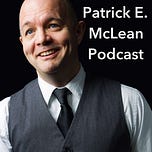



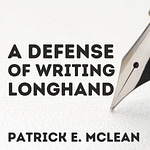


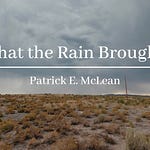
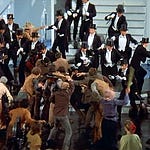


Share this post